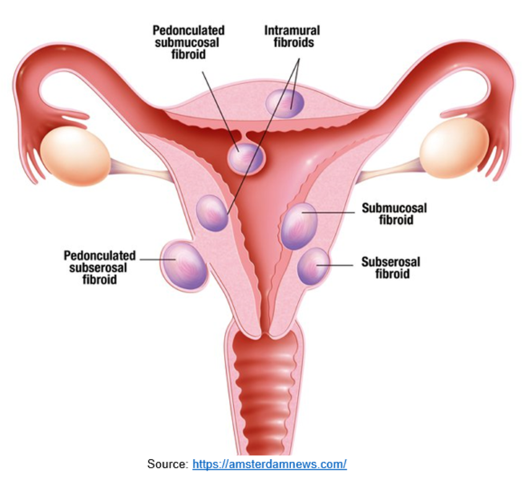Contents
How Do Uterine fibroids affect IVF?: Fibroids in the uterus are a prevalent problem in women of reproductive age. You may be concerned about how they might affect your IVF success and whether removing them will help. Consult Dr. Hrishikesh Pai, the best IVF doctor in Delhi, and get answers to all your queries.
 Up to 50% of women of reproductive age are suffering from uterine fibroids. Although most of the time, the presence of uterine fibroids is innocuous, you may still be wondering if they affect your chances of pregnancy through IVF. Consult Dr. Hrishikesh Pai, the best IVF doctor in Delhi, and get answers to all your queries.
Up to 50% of women of reproductive age are suffering from uterine fibroids. Although most of the time, the presence of uterine fibroids is innocuous, you may still be wondering if they affect your chances of pregnancy through IVF. Consult Dr. Hrishikesh Pai, the best IVF doctor in Delhi, and get answers to all your queries.
To begin, what exactly are fibroids?
Dr. Hrishikesh Pai, the best IVF doctor in Delhi, explains in this article about fibroids and your chances of pregnancy.
Uterine fibroids are non-malignant growth of muscle and fibrous tissue in and around the uterine cavity. These are also known as myomas.
Fibroids are asymptomatic and get diagnosed accidentally most of the time. However, if the symptoms do present themselves, they could be as follows:
- Painful sexual intercourse.
- Pain due to pressure on the pelvis.
- Excessive pain and bleeding during periods.
Myomas are liable to change the endometrial environment resulting in infertility issues.
Fibroids (myomas) are categorized based on their size, location, and growth:
- Subserious (grow in the outer wall of the uterus)
- Intramilitary (found in the muscular layers of the uterine wall)
- Mucosal submucosa (protrude into the uterine cavity)
Submucosal fibroids are further categorized into 3 types based on their size.
- Type 0 (fibroids with no intramural extension)
- Type 1 (fibroids with less than 50 percent intramural extension)
- Type 2 (fibroids with over 50 percent intramural extension)
Are fibroids responsible for infertility?
When the size of the fibroids is 6 cms or more, it blocks the fallopian tubes, due to which the fertilized egg cannot make it to the uterus for implantation. But that occurs only if the sperm can make it to the fallopian tube for fertilization. The sperm will not make it to the fallopian tube if the tube is blocked.
The fibroid alters the thickness of the uteral lining, making it impossible for the embryo to implant.
Not only that, fibroids restrict the blood flow to the uterus affecting the implantation of the embryo, and if implanted, then the growth of the embryo is affected.
Fibroids alone do not cause infertility. Before starting IVF, a fertility doctor will determine whether fibroids alone are the cause of infertility and whether any therapy is required.
Fibroids: Will They Affect My Pregnancy?
IF you develop fibroids during pregnancy and if the size is more than 5 cms, pain is the least of your worries. There are more severe consequences of this fibroid in your uterus.
Fibroids can result in:
The lack of placental fluid results in less oxygen and nutrients that the fetus receives. This causes restricted growth.
- Detached placenta
- Preterm labor
- It may require a c-section for varied reasons.
How does your doctor treat fibroids?
Fibroids can be treated in a variety of ways:
Medications
Medications can only reduce the symptoms of fibroids; they do not heal fibroids. The basic idea of medication is regulating your progestin and estrogen levels with the help of medication.
The bleeding reduces when progestin is controlled, and the menstrual cycle gets regularised. This can be achieved through tablets or IUDs.
Blocking estrogen production using anti-GnRH can stop the bleeding and shrink the fibroid.
Myomectomy
Myomectomy is a surgical procedure that your gynecologist will mostly do using laparoscopy. He will carefully remove the fibrous muscle and tissue, leaving the uterus unharmed. It leaves your chances of getting pregnant intact.
There are chances that the fibroids will redevelop.
Although laparoscopy is the most popular choice of surgical approach, it completely depends on the fibroid’s placement and size. The surgeon may have to go for an open myomectomy or hysteroscopic (through the vaginal opening) surgery.
Hysterectomy
IN extreme cases, Dr. Hrishikesh Pai is likely to suggest hysterectomy, removal of the uterus, which zeros your chances of future pregnancies.
A vaginal hysterectomy is a surgical procedure that removes the uterus from the (removing the uterus through the vagina)
Hysterectomy of the uterus (open lower abdominal surgery)
Hysterectomy via laparoscopy.
Embolization of the uterine artery (UAE)
Uterine artery embolization is a relatively recent surgery that involves cutting off the fibroid(s)’ blood supply, causing them to fade and die.
IVF treatment for fibroids
In vitro fertilization (IVF) is a fertility procedure that involves fertilizing an egg with sperm outside of the female body (in vitro). After then, the fertilized egg is inserted into the woman’s uterus, where it will grow and mature into a baby.
Without sugar coating, Dr. Hrishikesh Pai makes a point that pregnancy with uterine fibroids is not easy, especially the submucosal. You may need more than one attempt at IVF with an associated risk of miscarriages or complicated childbirth. It may also affect the fetus in some way.
Is surgery a viable option before IVF?
Before choosing whether you should undergo surgery, your doctor will consider the quantity and size of fibroids, the total size of the uterus, past surgery history, and ovarian accessibility.
Usually, the doctor will suggest a myomectomy before jumping into the IVF cycle.
But Dr. Hrishikesh Pai’s best advice on the matter is to preserve your eggs, ladies.





